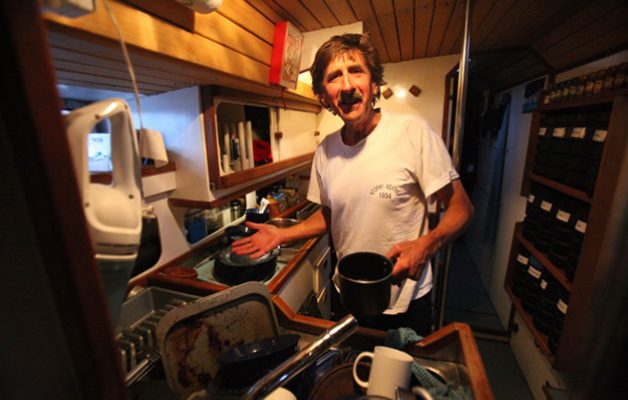Having played both roles in this question, our columnist Skip Novak can see all sides of the argument.
Having been a skipper of other people’s yachts in my former life and, for almost three decades now, a ‘poor bloody owner’ – most of the time employing skippers – I am well qualified to comment on the interesting and often stressful scenarios that can arise between the two when they are on board at the same time.
These incidents occur in the range of between 60ft and maybe 100ft in length. On anything smaller a professional skipper would frankly be in the way.
Nearing 80ft and certainly above the 100ft mark, the game changes and a professional skipper is a requirement for his/her sailing expertise to keep things safe, while management skills are also needed to keep the whole show on the road. And that might include making sure the cocktails are shaken not stirred.
It is also a given that in this size range, more times than not, a skipper will be a swashbuckler who is in it for the sailing and the travel. He/she would want to take on full responsibility and make their mark, most likely in hopes of climbing the ladder and running bigger vessels in future. And that means not counting time in too many marinas.
When the owner comes on board for a sail or a longer cruise, possibly also having come up through the ranks of owning smaller boats and knows a thing or two, you might have the perfect storm brewing. It requires a certain maturity on both sides of the equation to weather that possible blow.
But where should the line of responsibility be drawn in that shared experience of sailing together?
Rebel without a cause
I can remember many occasions from my youth of being heartily disappointed and at times disgusted and angry by witnessing incompetence from owners on yachts while in their employ – so much so that one American gentleman nicknamed me the ‘rebel without a cause.’ Those were the days when I was living out of a sea bag, fancy free and come what may, needing little in the way of sustenance other than a pint or six and certainly no regard for a pension.
Only when a few financial priorities raised their ugly head did I realise that I had to toe the line, behave myself and swallow humble pie, even if that meant letting the owner crash into the jetty leaving me to make the repairs. There was the next job to think of and when you got it, a reputation to maintain.
I readily admit that it is nigh on impossible at times not to interfere with the running of my boats while I am on board as a supernumerary during our various charters in southern waters. I have hired the best crew to run these boats for me and therein lies the dilemma – how to let go.
Taking the helm
My interest in being on board in the first place is really more about getting ‘there’ and engaging with the land, whether it be leading people in the mountains or simply walking with them amongst the penguins. I am an ‘expedition leader’ in the parlance.
If you, as an owner, are only sailing focused then it becomes more difficult and problematic in developing a mutual cooperation with your skipper where on one hand it is your boat and you should ‘take the helm’ so to speak, and on the other side when things get tricky to step back and let the skipper and crew get on with it. That is what you hired them to do.
By the same token, a skipper worth his salt will step back and let the owner take command without making an announcement, and even let him make a few mistakes. The more experienced the skipper, the more this will appear seamless and natural.
On the Pelagics my complaint seems to be that the mainsheet is always over-trimmed. I claim to feel this in my guts while in my bunk. When I rise in my skivvies, unasked for, and rush into the cockpit to dump off a few metres of mainsheet the crew, knowing my idiosyncrasies, are always highly amused.
After having made many mistakes overly interfering as an owner I now have a foolproof formula, especially during those all-critical docking manoeuvres in heavy winds: go below, make a cup of tea and do some emails. When you hear the engine shut down it is safe to come on deck. Your skipper and crew will appreciate this.




